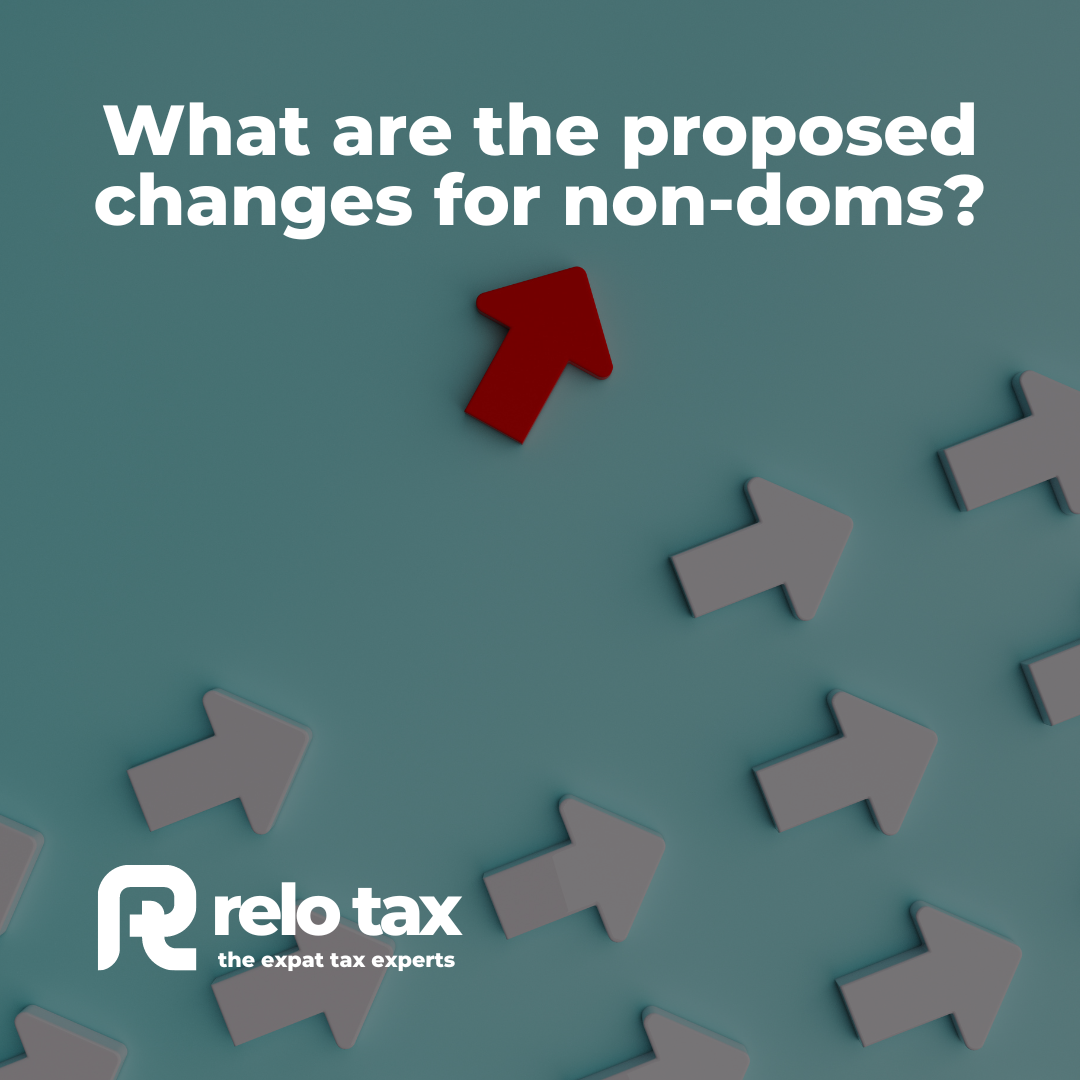What are the proposed changes for non-doms?
LAST UPDATED 8 AUGUST 2024
Arguably the biggest change announced by then Chancellor, Jeremy Hunt, at 2024’s Spring Budget was the proposed abolition of the non-dom regime and remittance basis.
Labour had said they would abolish the existing regime and introduce a new one ‘fit for the modern world’, but the then Chancellor stole a march on this and announced a new residence-based regime that will be introduced from April 2025.
At the end of July, the new Labour government published information on a number of proposed tax reforms, including the changes affecting non-doms, which has confirmed a number of the original proposals, but with a few key changes.
What are the changes?
The new rules will apply from April 2025 (i.e. for the 2025/26 tax year onwards) and will apply immediately to any new arrivals in the UK during the 2025/26 tax year.
New arrivals to the UK
There will be the introduction of a residence-based test from April 2025.
The new regime will allow new arrivals to the UK (that have been non-UK tax residents for 10 consecutive years or more before they come to the UK) to bring / remit their overseas income and gains to the UK tax free for their first 4 years of tax UK residence.
From the start of their 5th year of UK tax residence, individuals will pay UK tax on their worldwide income and gains at the prevailing rates of income tax and capital gains tax in the same way as any other UK tax resident would.
Transitional provisions for existing non-doms
Existing tax residents who have been resident for fewer than four tax years and are eligible for the new residence-based exemption will also benefit from the relief from tax on their foreign income and gains until the end of their 4 year of tax residence.
Existing non-doms who have claimed the remittance basis will be given the opportunity to ‘re-base’ their capital assets to 5 April 2019 value for disposals that take place after 6 April 2025.
There have been two key changes since the original proposals were announced in the Spring:
The previously announced temporary 50% reduction in the personal foreign income subject to tax in 2025–26 for non-doms who will lose access to the remittance basis on 6 April 2025 and are not eligible for the new 4-year exemption, will now not be introduced.
The previously announced transitional arrangements for existing non-doms, where these individuals will have a two-year window (2025-26 and 2026-27) where they can bring to the UK their foreign income and gains that arose before 6 April 2025 at a flat rate of 12%, will also now not be introduced (i.e. any remittance of income and gains that were subject to the remittance basis before, will be taxed in full when they are remitted / brought to the UK).
Inheritance Tax
Inheritance tax (IHT) is currently a domicile-based system. The government intends to replace this with a new residence-based system from 6 April 2025. This will affect the scope of property brought into UK IHT for individuals and trusts.
The government envisages that the basic test for whether non-UK assets are in scope for IHT from 6 April 2025 will be whether a person has been resident in the UK for 10 years prior to the tax year in which the chargeable event (including death) arises, with provision to keep a person in scope for 10 years after leaving the UK. The government will engage further with stakeholders on the operation of the new test, so that any refinements can be considered fully. IHT charges arising on deaths occurring before 6 April 2025 will be unaffected by these changes and will be charged according to the existing rules.
Offshore Trusts
The government will end the use of Excluded Property Trusts to keep assets out of the scope of IHT. The government intends to change the way IHT is charged on non-UK assets which are held in such trusts, so that everyone who is in scope of UK IHT pays their taxes here.
Confirmation of these new rules and their detailed application, including transitional arrangements for affected settlors, will be published at the Budget, following external engagement.
Contact Us
Get in touch to find out how the topic covered in this article might apply in your circumstances, how you can reduce your tax liabilities and maximise your tax efficiency.
Disclaimer: Please note that the above is for general information only and does not constitute financial or tax advice. You should not rely on this information to make or refrain from making any decisions. You should always obtain independent professional advice in respect of your own situation.

